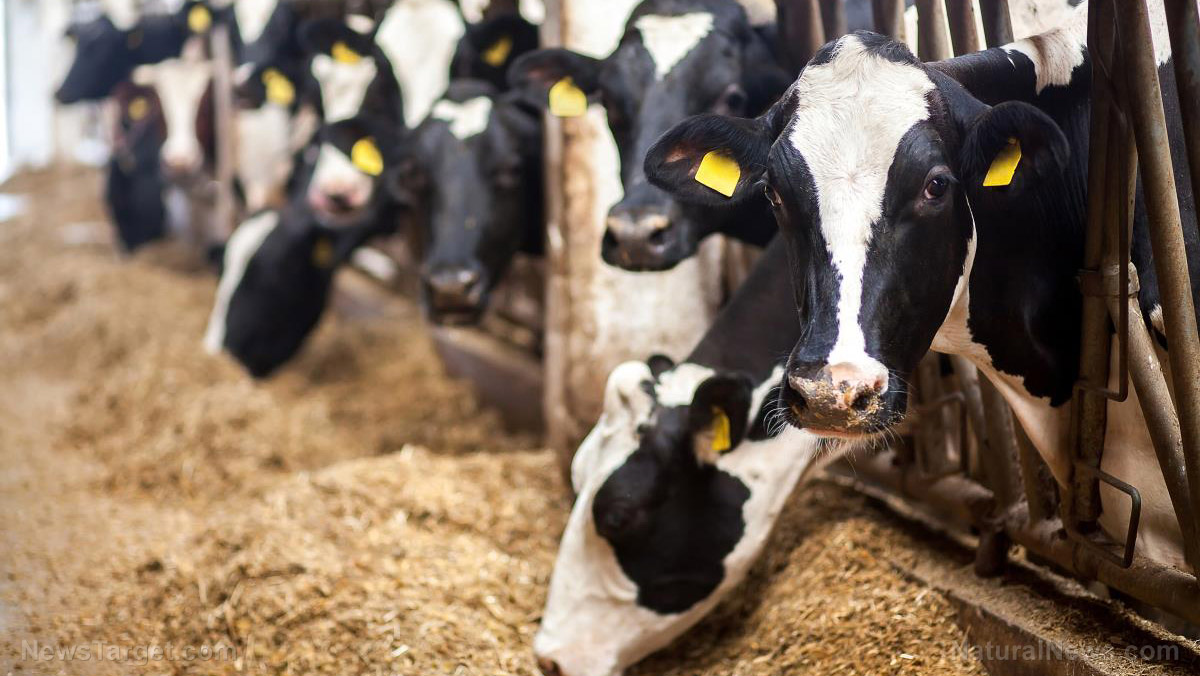AGROTERRORISM: Chinese couple charged with smuggling dangerous crop fungus into the U.S.
06/04/2025 / By Olivia Cook
- Two Chinese researchers are charged with smuggling a dangerous crop fungus into the U.S., triggering concerns over “agroterrorism” – the deliberate use of biological agents to attack or disrupt a country’s food supply.
- Fusarium gramineaum infects staple crops (barley, corn, rice and wheat), causing “head blight” and releasing toxins harmful to humans and animals.
- The fungus can devastate crops and food supplies, crippling food production with billions in global losses and spiking serious health risks nationwide.
- The researchers had ties to the Chinese Community Party (CCP) and may be part of a larger pattern of biosecurity threats.
- You can stay informed, support local agriculture and food systems, demand transparency in food sourcing and advocate for stronger protection against biological threats.
Agroterrorism refers to the intentional introduction of contaminants, diseases and pests into a country’s food supply to cause widespread harm. The goal isn’t just to damage crops or livestock. It is to disrupt economies, spread fear and weaken a nation from the inside out – through its food.
The term is under the spotlight after federal authorities charged two Chinese scientists with attempting to smuggle a highly dangerous fungus into the heart of America’s grain belt. One was visiting from China, and the other was working at a U.S. university. The pathogen, Fusarium graminearum, is destructive to crops and human health that scientists warn it could be used as a biological weapon.
This fungus doesn’t just kill crops. It produces toxins that can sicken humans and animals, causing vomiting, liver damage and reproductive problems. In food safety circles, it is considered a top-tier threat.
Federal officers at Detroit Metro Airport flagged a man arriving from China, Zunyong Liu, who claimed he was here as a tourist. But when Customs and Border Protection (CBP) officers searched his luggage, they found something far from innocent.
They seized reddish plant materials, hidden in tissues among Liu’s belongings. The plant material was later identified as F. graminearum, which can devastate entire harvests of barley, corn, rice and wheat.
Liu eventually confessed that he planned to deliver the samples to his girlfriend Yunqing Jian, a postdoctoral researcher at the University of Michigan. Both have now been charged with conspiracy, smuggling, making false statements and visa fraud. Jian is currently in custody and the Federal Bureau of Investigation (FBI) isn’t downplaying the case.
Cheyvoryea Gibson, Special Agent in Charge of the FBI’s Detroit Field Office, emphasized that the incident was not an isolated case. He described it as a deliberate attempt to introduce a biological threat into the U.S. agricultural system, calling it a matter of national security.
The quiet threat to America’s food
Agroterrorism involves deliberately introducing animal pathogens, plant diseases or toxins to damage crops, livestock or the food supply. This isn’t theoretical – it can crash economies, empty grocery shelves and hurt people’s health.
Unlike bombs in a military strike or a cyberattack, they creep in silently through cargo shipments, seeds or “research material.” By the time authorities notice and detect it, it may be too late and the damage can be irreversible.
Food systems are soft targets. The toxins released by the crop pathogens, like F. graminearum, can cause liver damage, reproductive issues and vomiting. And when food becomes scarce, prices surge – hurting families most.
Feds find evidence of intent to sabotage America’s food supply
Investigators uncovered texts between Jian and Liu going back years. In one, Jian bragged about hiding samples in her shoes to bypass airport screening. In another, she had materials mailed from China hidden in a book. Liu had a research article saved on his phone called “Plant-Pathogen Warfare Under Changing Climate Conditions.”
Jian was also receiving funding from a Chinese government-affiliated foundation and her phone held a signed pledge of loyalty to the Chinese Communist Party. Both Jian and Liu have published academic papers on F. graminearum dating back to 2014.
This case goes beyond mere laboratory misconduct. It raises serious concerns about whether food security is emerging as a new battleground in global tensions. U.S. Attorney Jerome Gorgon underscored the severity of the situation, stating that the fungus in question was not being studied casually.
According to Gorgon, who serves as the interim U.S. attorney for the Eastern District of Michigan, there was clear intent to circumvent safeguards and introduce a highly dangerous biological agent. As the FBI made clear, this was more than a smuggling case. It was a potential act of agroterrorism right at the doorstep of America’s agricultural heartland.
While the headlines may sound ominous, this is also a moment for action and empowerment. Here are some actions you can take:
- Learn the term and be aware of it. Agroterrorism isn’t science fiction; it is real and being informed is the first defense.
- Support local organic farms and food systems. Building relationships with trusted food sources strengthens community resilience.
- Push for stronger biosecurity policies. Demand transparency in university research and oversight of foreign-funded programs.
- Grow something. From backyard or indoor gardens to chicken coops, local food helps reduce community reliance on vulnerable supply chains.
As global tensions rise and food systems grow more complex, the question isn’t only whether America’s food supply is safe. It now also includes the question of how can Americans contribute to keeping it safe.
Watch this news report about the two Chinese nationals charged for smuggling F. graminearum into America.
This video is from the Daily Videos channel on Brighteon.com.
More related stories:
Microscopy exposes shocking pathogens in ‘organic’ biosludge sold as garden fertilizer.
Food security: The best crops to grow in an edible garden.
Indigenous communities are tackling food security and protecting the environment by saving seeds.
Sources include:
Submit a correction >>
Tagged Under:
agriculture, agroterrorism, biological warfare, biological weapons, bioterrorism, biowar, China, Chinese Communist Party, crime, crops, dangerous, food collapse, food supply, Fusarium graminearum, harvest, head blight, national security, terrorism, toxins
This article may contain statements that reflect the opinion of the author
RECENT NEWS & ARTICLES
COPYRIGHT © 2017 FOOD SUPPLY NEWS




















